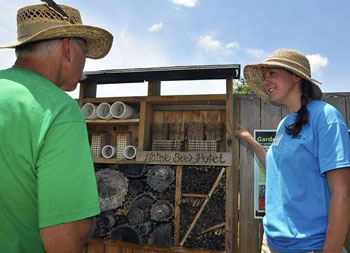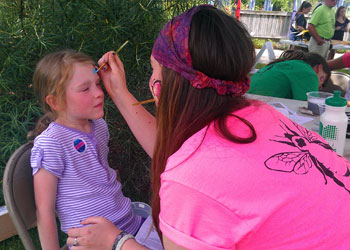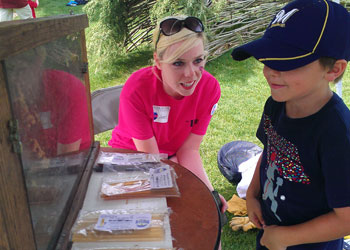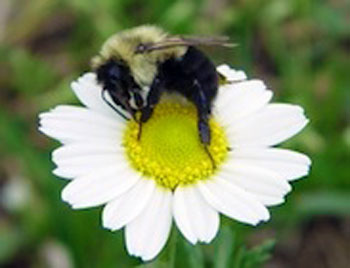Get your summer buzz on at the second annual Bee Palooza at MSU
In celebration of National Pollinator Week, join us Sunday, June 23, for Bee Palooza at the MSU Horticulture Gardens to have fun and learn all about pollinators.
 Pollinators play an important role in the production of many crops, including almonds, apples, blueberries, cherries, coffee, pears, plums, squash and melons. Many people think only of allergies when they hear the word “pollen,” but pollination — the transfer of pollen grains to fertilize the seed-producing ovaries of flowers — is an essential part of a healthy ecosystem. Many flowering trees, shrubs and wildflowers depend on pollinators, mainly bees, to produce seeds, nuts and fruit.
Pollinators play an important role in the production of many crops, including almonds, apples, blueberries, cherries, coffee, pears, plums, squash and melons. Many people think only of allergies when they hear the word “pollen,” but pollination — the transfer of pollen grains to fertilize the seed-producing ovaries of flowers — is an essential part of a healthy ecosystem. Many flowering trees, shrubs and wildflowers depend on pollinators, mainly bees, to produce seeds, nuts and fruit.
In celebration of National Pollinator Week, Michigan State University Extension is hosting the second annual Bee Palooza from 1 to 4 p.m. on Sunday, June 23, to give people of all ages a chance to have fun and learn about pollinators.
Like last year, a series of six stations will be set up in various parts of the MSU Horticulture Gardens, each on a different topic or demonstration. Learn about what bees are found in Michigan, view the inner workings of both honey bee and bumble bee colonies, learn how to build your own solitary bee nesting box, and learn about bee-friendly garden designs. In addition, there will be pollinator-themed face painting and a scavenger hunt for the young at heart.


This event is free and open to the public. In the event of rain, Bee Palooza will be cancelled. The MSU Horticulture Gardens are located on the southwest side of Bogue Street and Wilson Road on the MSU campus, and attendees should first go to the visitor center at the (free) parking lot on Bogue Street next to the gardens to pick up a guide to the event.
 More details are available on Bee Palooza’s Facebook page. Also, see the MSU Horticulture Garden website for maps to the parking lot and maps of the gardens, along with a list of other campus events that weekend.
More details are available on Bee Palooza’s Facebook page. Also, see the MSU Horticulture Garden website for maps to the parking lot and maps of the gardens, along with a list of other campus events that weekend.
For more information, contact Julianna Wilson at jkwilson@msu.edu or Rufus Isaacs at isaacsr@msu.edu.
Dr. Isaacs’ work is funded in part by MSU‘s AgBioResearch.



 Print
Print Email
Email

